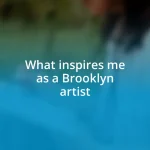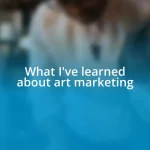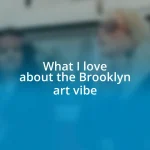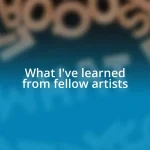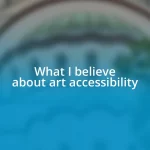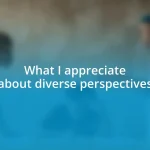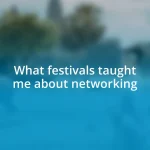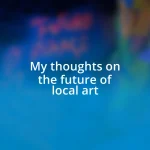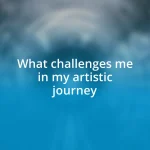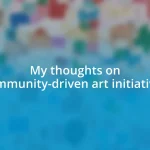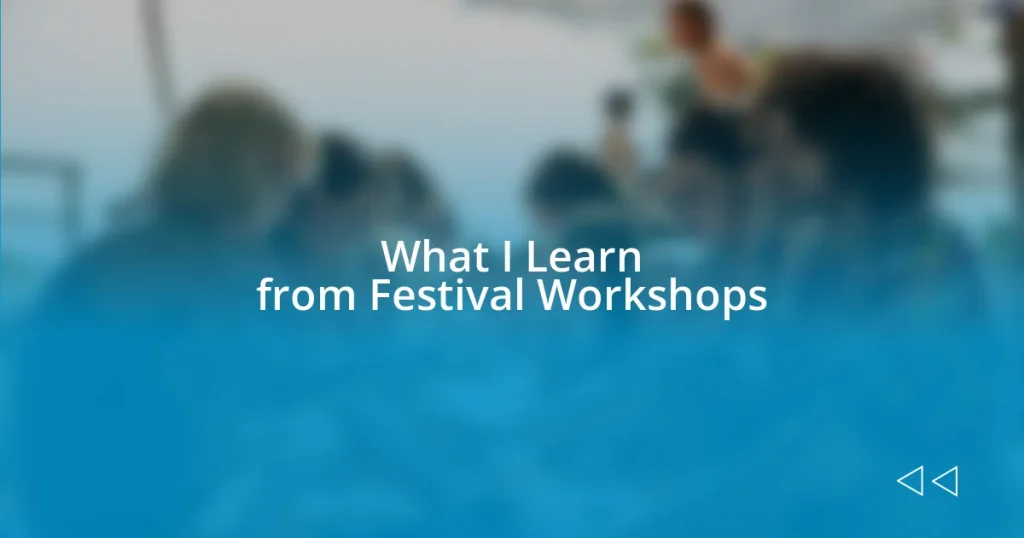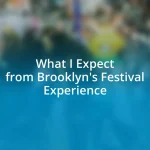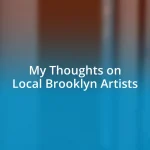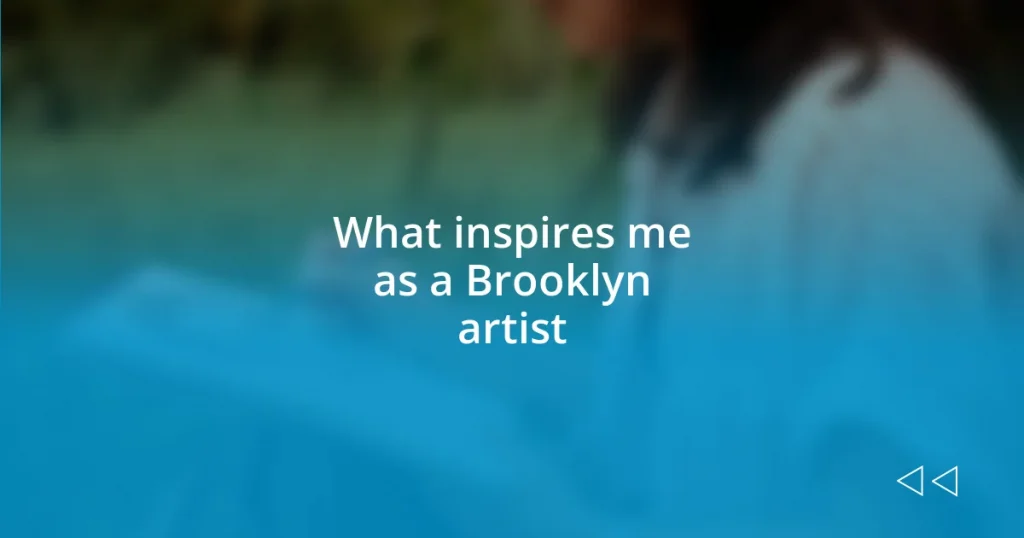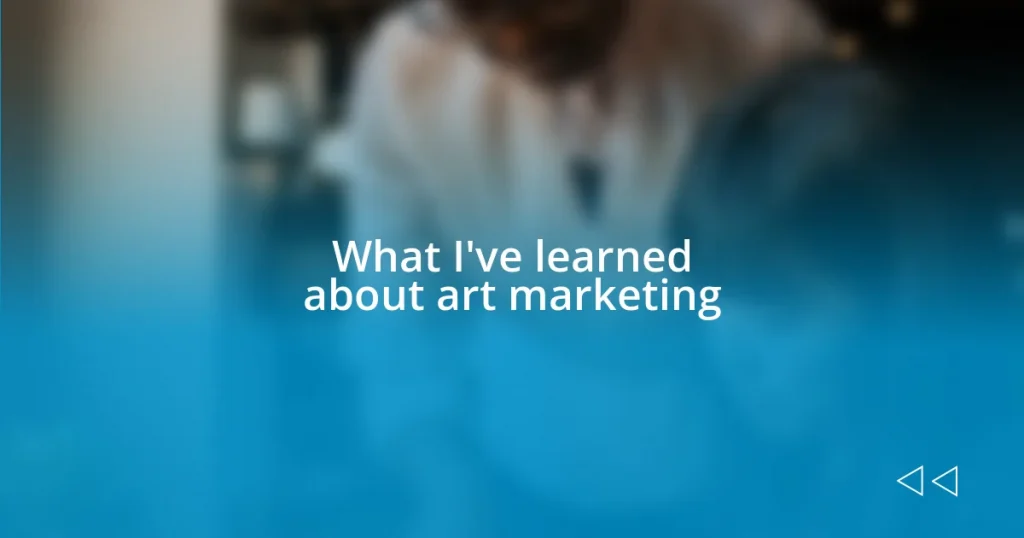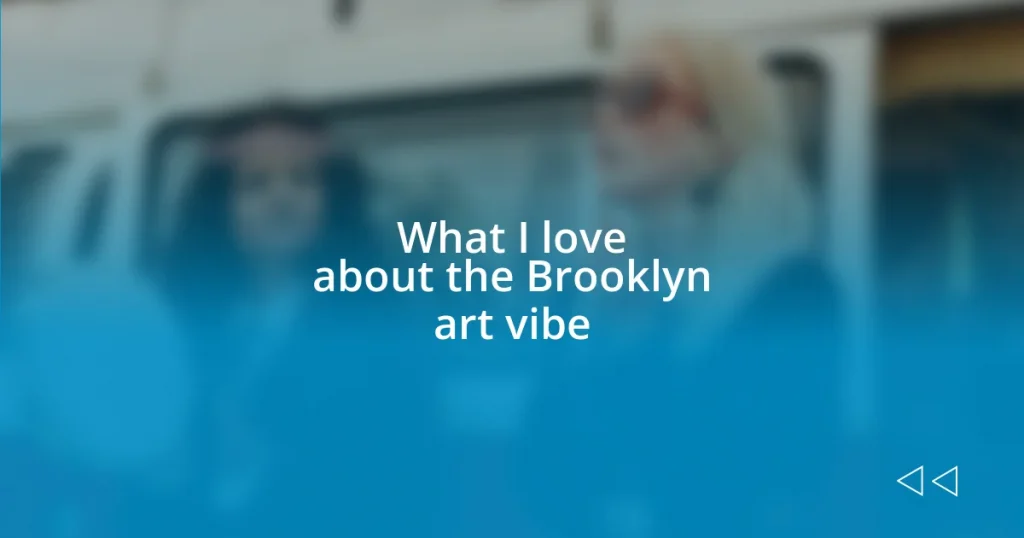Key takeaways:
- Workshops enhance hands-on learning, collaboration, and creativity, leading to transformative experiences in various art forms.
- Key skills gained from workshops include collaboration, problem-solving, time management, technical skills, and confidence building.
- Networking at festivals can lead to meaningful collaborations and lasting relationships, with opportunities to apply insights into everyday life.
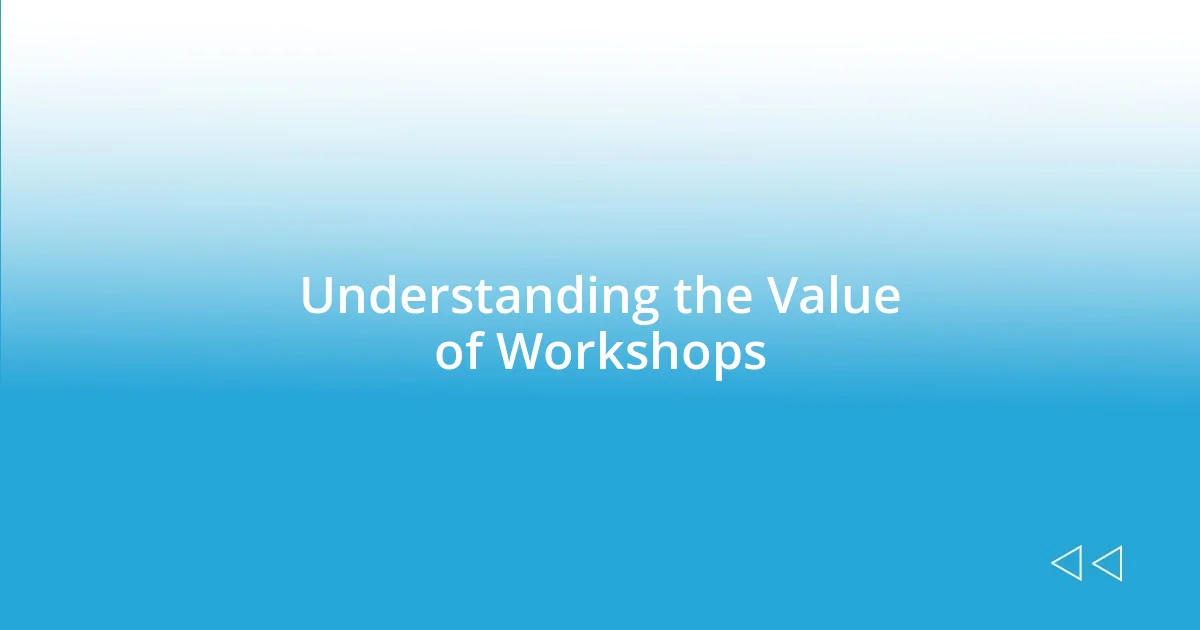
Understanding the Value of Workshops
Workshops offer an incredible opportunity for hands-on learning that traditional education often lacks. I remember attending a pottery workshop where, for the first time, I felt the clay between my fingers as I shaped it into something beautiful. Isn’t it fascinating how the tactile experience of creation can deepen our understanding of both the material and ourselves?
The collaborative environment of workshops fosters connection among participants, transforming learning into a shared journey. I once attended a music workshop where we all sat in a circle, sharing our original songs. The vulnerability we showed was profound, and we learned so much not just from the instructor, but from each other. How often do we get to explore our art in such a supportive setting?
Finally, the dynamic nature of workshops drives innovation and creativity. In one workshop, I tried techniques I would have never thought to experiment with on my own. I left not just with new skills, but with fresh ideas and a reinvigorated passion for my craft. Have you ever felt a surge of inspiration after trying something new? That’s the magic of workshops—they can ignite a fire in us that fuels our creative pursuits beyond the classroom.
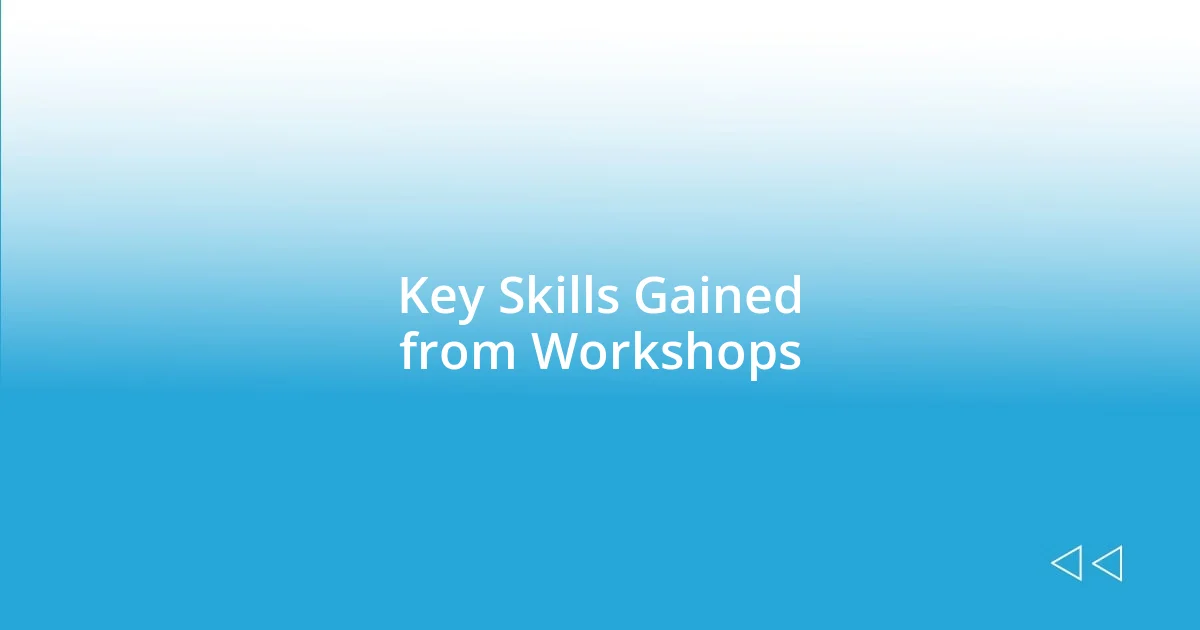
Key Skills Gained from Workshops
Participating in workshops has allowed me to hone several key skills that I find invaluable. I vividly recall a cooking workshop where I learned not just the techniques, but also the nuances of flavor pairing. It was eye-opening to witness how something as simple as adjusting the acidity in a dish could elevate it. This kind of hands-on experience fosters adaptability, enabling me to think on my feet in the kitchen or any other creative space.
When it comes to specific skills gained from workshops, here’s a list that reflects my journey:
- Collaboration: Working with others teaches effective communication and the ability to listen and share ideas openly.
- Problem-Solving: Often, I’ve encountered unexpected challenges during projects, pushing me to think critically and find practical solutions.
- Time Management: Workshops frequently involve tight deadlines, helping me to prioritize tasks and maximize efficiency.
- Technical Skills: I’ve picked up various tools and techniques, be it in photography or painting, that I now integrate into my daily practice.
- Confidence Building: The supportive atmosphere encourages me to step out of my comfort zone, transforming hesitation into self-assurance.
In essence, workshops are not just about learning new skills; they are transformative experiences that shape how I approach my passions.
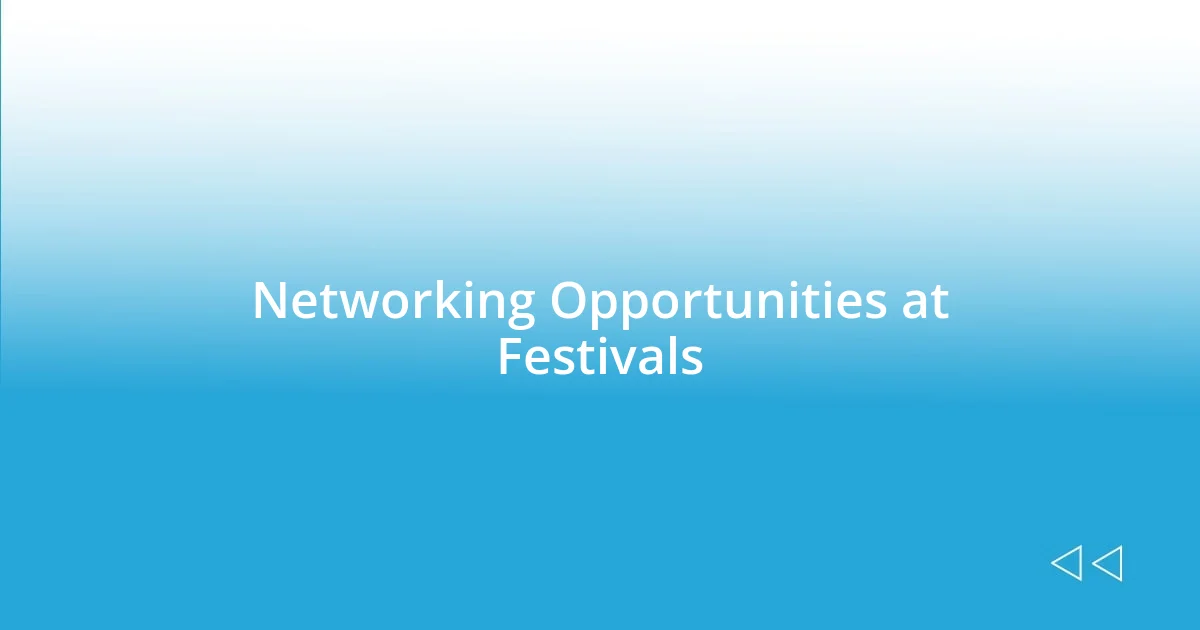
Networking Opportunities at Festivals
Networking Opportunities at Festivals can be a game-changer for anyone looking to expand their professional circle. I remember attending a photography festival and meeting a fellow photographer who later became a mentor to me. The chance encounters at these events often unfold into meaningful collaborations, allowing us to share insights and challenge each other creatively. Wouldn’t you agree that a single conversation can sometimes shift the trajectory of your career?
How I approach networking at festivals has evolved over time. In my early experiences, I stuck to familiar faces, but I soon realized that stepping out of my comfort zone yields the best connections. I once introduced myself to a stranger over lunch during a workshop, and we ended up collaborating on an art installation for the festival. That unexpected bond opened doors I never anticipated!
Festivals create an atmosphere ripe for organic networking, facilitating genuine relationships over shared interests and passions. The informal settings give us a break from rigid networking norms, allowing connections to blossom naturally. I often share tips with attendees who approach me, and in those moments, I feel that I am contributing to a larger community. It’s rewarding to know that the relationships formed at these gatherings often extend beyond the festival itself, leading to lasting partnerships and friendships that enhance our creative pursuits.
| Networking Aspect | Example from My Experience |
|---|---|
| Meeting New People | Encountered a photographer who became my mentor at a festival |
| Stepping Out of Comfort Zone | Collaborated with a stranger on an art installation from a lunch conversation |
| Building Genuine Relationships | Sharing insights with fellow attendees that created lasting connections |
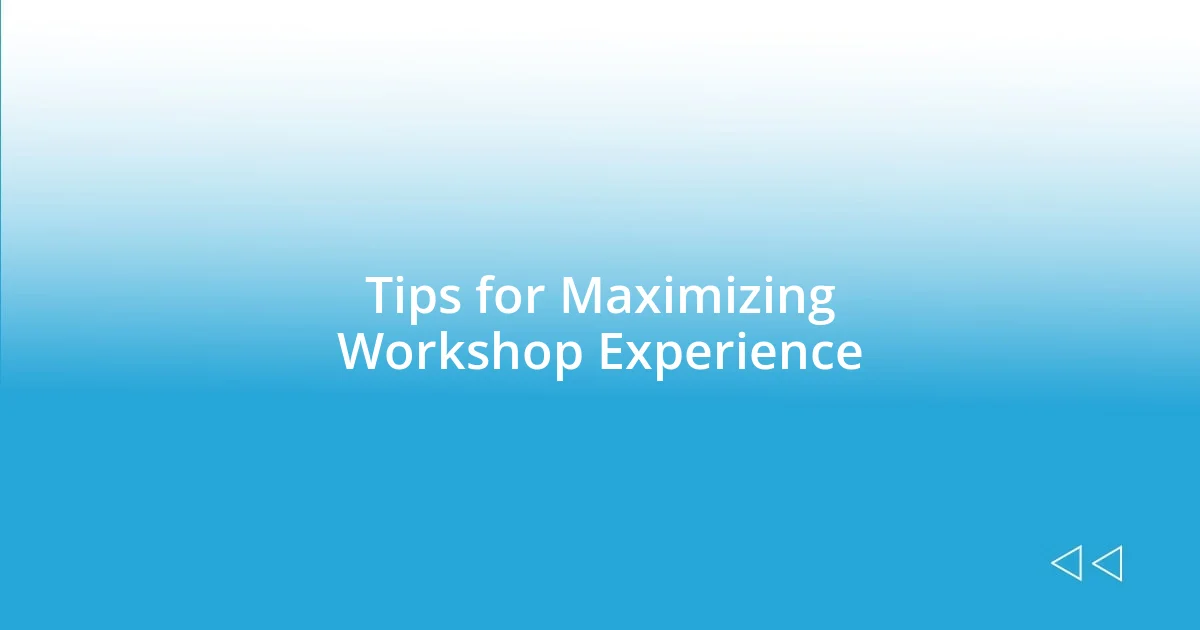
Tips for Maximizing Workshop Experience
Maximizing your workshop experience starts with preparation. I believe in immersing myself in the workshop’s theme beforehand. For instance, when I joined a dance workshop, I researched the choreographer’s style and even practiced a few basic steps. This pre-work not only built my confidence but also allowed me to dive deeper into the sessions, as I was more attuned to the instructor’s techniques.
During the workshops, engaging actively is crucial for gaining the most from the experience. I always remind myself to ask questions, no matter how trivial they may seem. One time, in a painting workshop, I hesitated at first but eventually asked the instructor for feedback on my color choices. That simple question actually led to valuable advice that transformed my piece and boosted my creative exploration. Have you ever held back from asking something important? I know I have, but taking that leap can open doors to incredible insights.
Finally, reflection after the workshop is something I cherish genuinely. I set aside time to jot down my thoughts and feelings about what I learned and experienced. For instance, after a cooking workshop, I realized that my approach to flavor had expanded dramatically. By writing down my impressions, I solidified the lessons learned and felt more inspired to experiment in my own kitchen. How do you process new knowledge? For me, this reflection is like capturing fleeting moments of inspiration that I can revisit later.
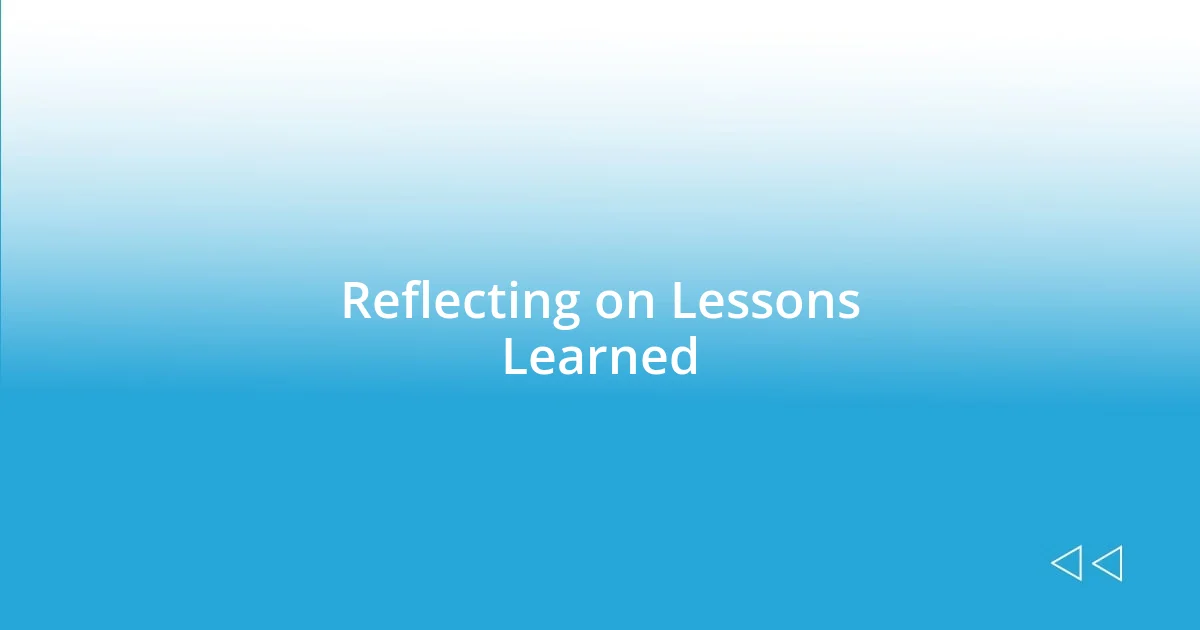
Reflecting on Lessons Learned
Reflecting on the lessons learned from festival workshops can be incredibly rewarding. I remember feeling overwhelmed after a particularly intense session on digital art techniques. I took a moment to sit under a nearby tree, letting the insights sink in. It dawned on me that the most significant lessons often come not from the technical skills, but from the moments of vulnerability when we share our struggles and triumphs. Have you ever noticed how these raw exchanges often lead to the most profound realizations?
As I processed my experiences from a sound engineering workshop, I found that writing down what resonated with me was invaluable. I crafted a mind map that linked concepts I’d learned to my existing knowledge. It was fascinating to see how ideas from different domains can interconnect. For instance, understanding sound waves not only improved my music projects but also gave me a fresh perspective on my visual art. Thinking back, can you recall a time when a piece of knowledge transformed the way you approached your work?
Ultimately, reflecting on what I’ve learned allows me to integrate those lessons into my creative practices. After a festival where I participated in a storytelling workshop, I found myself experimenting with narrative techniques in my photography. The intertwining of visuals and narratives felt powerful, shaping my artistic voice in ways I hadn’t anticipated. It’s a reminder that the learning doesn’t stop when the workshop ends; it ripples out into our lives, influencing everything we do. How have workshops shaped your own creative expressions?
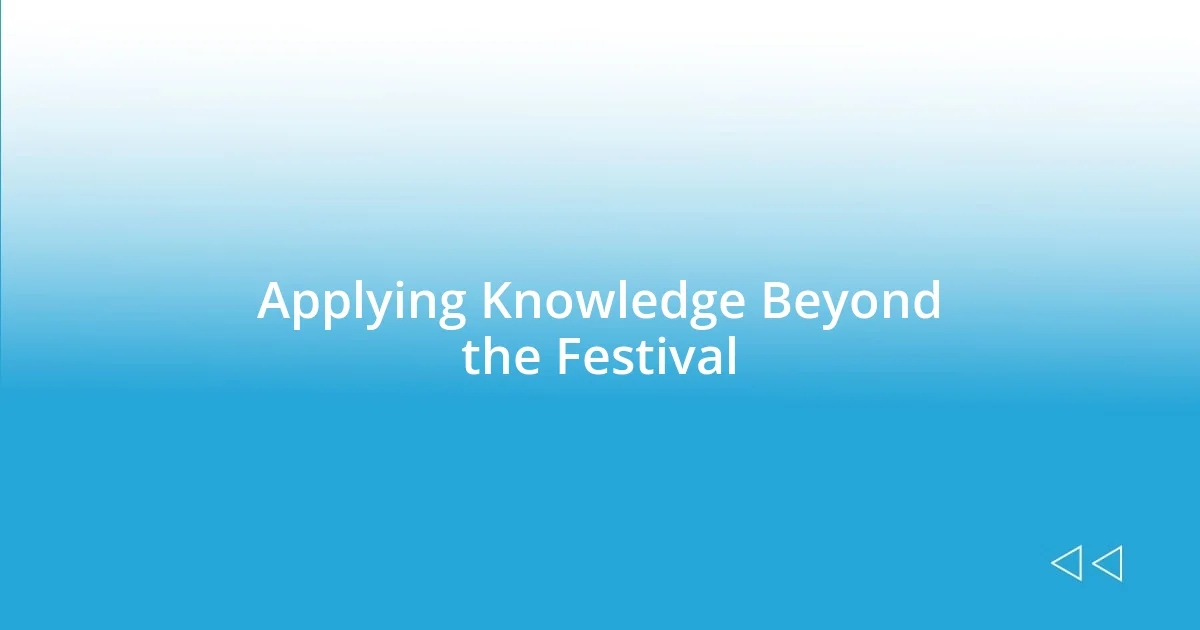
Applying Knowledge Beyond the Festival
After a festival workshop, I often find myself weaving the new skills I’ve acquired into my daily life. For example, after a pottery workshop taught by a local artisan, I came home eager to craft my own projects. As I shaped my first bowl, I recalled the instructor’s emphasis on patience and intention. This newfound appreciation turned what could have been a frustrating experience into a meditative practice. How many times do we let challenges become roadblocks rather than stepping stones?
In another instance, a writing workshop challenged me to explore vulnerabilities in my storytelling. Once back in my routine, I began to incorporate those insights into everyday conversations. I found myself sharing more personal anecdotes, sparking deeper connections with friends. This shift not only improved my storytelling but enriched my relationships. Have you ever noticed how a simple change in approach can transform interactions in your life?
I also make it a point to implement collaborative ideas from workshops into communal settings. After attending a festival focused on sustainable living, I started a small gardening group in my neighborhood. The workshop had ignited a passion for sharing eco-friendly practices. This endeavor not only deepened my understanding but also fostered a sense of community. It’s fascinating to see how the lessons learned can ripple through our lives, isn’t it?

